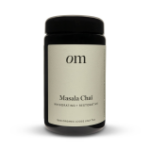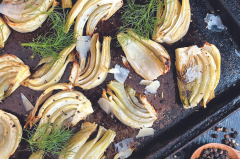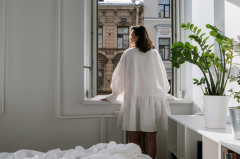In a culture where alcohol is used as a social lubricant and a tool for relaxation, the growing trend of midlife women relying on it has health experts concerned. Torrens University Australia’s Dr Belinda Lunnay, Postdoctoral Researcher in Public Health, and Paul Ward, Professor of Public Health, have undertaken a study to explore women’s understandings of the health risks associated with alcohol consumption – and what leads them to it in the first place.
“In Australia, midlife women today are drinking more alcohol than previous generations of women have in their midlife years,” says Belinda, who works at the university’s new Research Centre for Public Health, Equity and Human Flourishing, led by Professor Ward.
“At a population level, alcohol consumption in Australia is trending toward a decrease. Young people in the past were drinking the most. Now their alcohol consumption is decreasing and it’s the midlife population groups who are among Australia’s heaviest drinkers. This shift led us to decide to explore the causes for this change,” explains Belinda, whose research is funded by the Australian Research Council (ARC) as part of the ARC’s Discovery Project program.
“While working on this project, I was confronted by the level of alcohol consumption for some women. Such as two bottles of wine per evening, or tumblers of mixed vodka, like half a bottle of vodka – very high volumes because it points to a serious need for alcohol” adds Belinda, whose study is funded by the Australian Research Council (ARC) as part of the ARC’s Discovery Project program.
Women’s drinking is concerning because of increased risks of depression, anxiety, heart disease, stroke, liver disease and cancers like breast cancer – a focus for Belinda’s research.
“We are looking at midlife women [aged 45 to 64] because they’re at the age where they have an increased risk of breast cancer anyway. When alcohol is also part of that picture, it increases the risk,” explains Belinda. “In terms of breast cancer risk, the effects of alcohol are cumulative and build up over time and the number of drinks consumed across a lifetime.”
So why are women in this demographic turning to alcohol? When Belinda initially interviewed 50 women prior to COVID-19 lockdowns, she found that stress and socialising were popular reasons for drinking. Belinda spoke with the same group of women in the pandemic.
“During lockdowns, women’s drinking increased in frequency and these increases were linked to negative emotions like anxiety, uncertainty and depression. We recognised that with the lockdown conditions and disruptions to normal life, there could be an exacerbation of stress, and women could no longer consume alcohol in social situations. Lots of women we spoke to were working from home and home-schooling children,” says Belinda.
“Even in non-COVID times, women often have multiple competing caring responsibilities by the nature of their gender. Some women said that when they drink alcohol, they feel it’s almost nourishing. They spoke about having a drink as something that’s only for them; a treat, some time out, a way to calm down. Because of this, women describe alcohol as a form of self-care.”
If you can afford it, that is. “We found that women who were living with the most privilege – with access to money, a range of activities, to social support – talked about alcohol as an enjoyed ritual – for example, demarcating the end of the day or feeling connected in social relationships,” says Belinda, who also conducted research into stockpiling behaviour during the pandemic.
“Women who were living in what we might call a working-class position or were living in poverty or very difficult circumstances with limited incomes weren’t stockpiling at all – they couldn’t afford to. In some instances, they began to drink less. So, we found that drinking alcohol is quite sporadic for women on low incomes.”
Social class aside, Belinda says “women are a demographic targeted by alcohol advertising” and that’s clearly working. “We found that some women said they felt like a more authentic version of a midlife woman, who is doing the hard juggle of work and family and doing a good job of that juggle, so they needed a glass of wi





